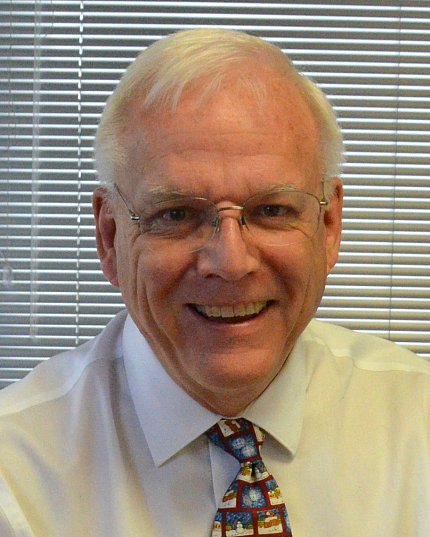CSR’s Hunt Retires After 43 Years at NIH

Ron Hunt, who retired recently as an administrative officer in the Center for Scientific Review, describes NIH as the biggest influence on his life. Not only did he see first-hand the value of NIH research, he said, but also he learned “not to sweat the small stuff.”
From 1974 to 2000, Hunt was a recreational therapist in the Clinical Center, working with patients, many critically ill, and families. As a member of therapeutic recreation services, he conducted craft, physical and social activities when hospital stays of weeks or months were the norm. Often he helped family members from abroad navigate U.S. life so they could more effectively support their loved ones undergoing treatment.
Among other accomplishments, Hunt created a fitness/weight room when such facilities were not common. Beyond acquiring space and equipment, he overcame management, staff and patient apprehension.
“By building the program with input from all, it won enthusiastic support from medical and recreational personnel,” he said, and patients gained a safe place to exercise. He also recalled hearing by phone that he had 20 minutes to get ready to host renowned boxer Muhammad Ali. Hunt remembers Ali’s joking interactions with a young ICU patient named Frazier (the name of one of Ali’s boxing foes).
“I loved working with patients and seeing their smiles when we helped them,” he said. But he also experienced heartache after the deaths of many patients he came to know well.
“Ron was a center of calm, which was a huge asset,” recreational therapist Debbie Marcus said. “He was a great teacher, whether teaching patients how to relax or co-workers how to deal with computers.” In fact, Hunt motivated her to specialize in recreational therapy in her own career at NIH when he gave a presentation at Montgomery College in the mid-1970s.
Hunt earned an M.A. in administration from the University of Maryland’s University College and, in 2000, became an administrative officer in the Office of the Director of the Clinical Center. Two years later, he joined the hospital’s department of clinical research informatics. He supported development of the Clinical Research Information System (CRIS), as well as changes in travel, teleworking and security processes. Although not as connected to patients as in recreational therapy, he valued “working with people and making things easier for them.”
In 2007, Hunt moved to CSR, where colleagues also praised his calming personality. “His calm was a positive force, he didn’t get rattled,” said Marilyn Cuzzolino, lead AO. “In a demanding environment, he kept things light-hearted.” As AO for various CSR divisions and directors, he worked with scientific review officers, staff and reviewers, many of whom were new to NIH processes.
His earlier patient contacts reinforced the importance of supporting extramural research as AO. “This place [CSR] is the first stop to finding cures,” he said. “My years in the Clinical Center made the NIH mission very real to me. Working in CSR was another way for me to help further the mission.”
Hunt, a lifelong Washingtonian, will remain in Maryland. He will hone his cooking and gardening skills. His wife works and attends school full-time and his mother and two sons also live in the area, so those skills are in demand. As he learned at NIH, he will focus on what is important in life and not sweat the small stuff.
